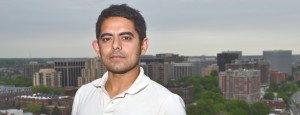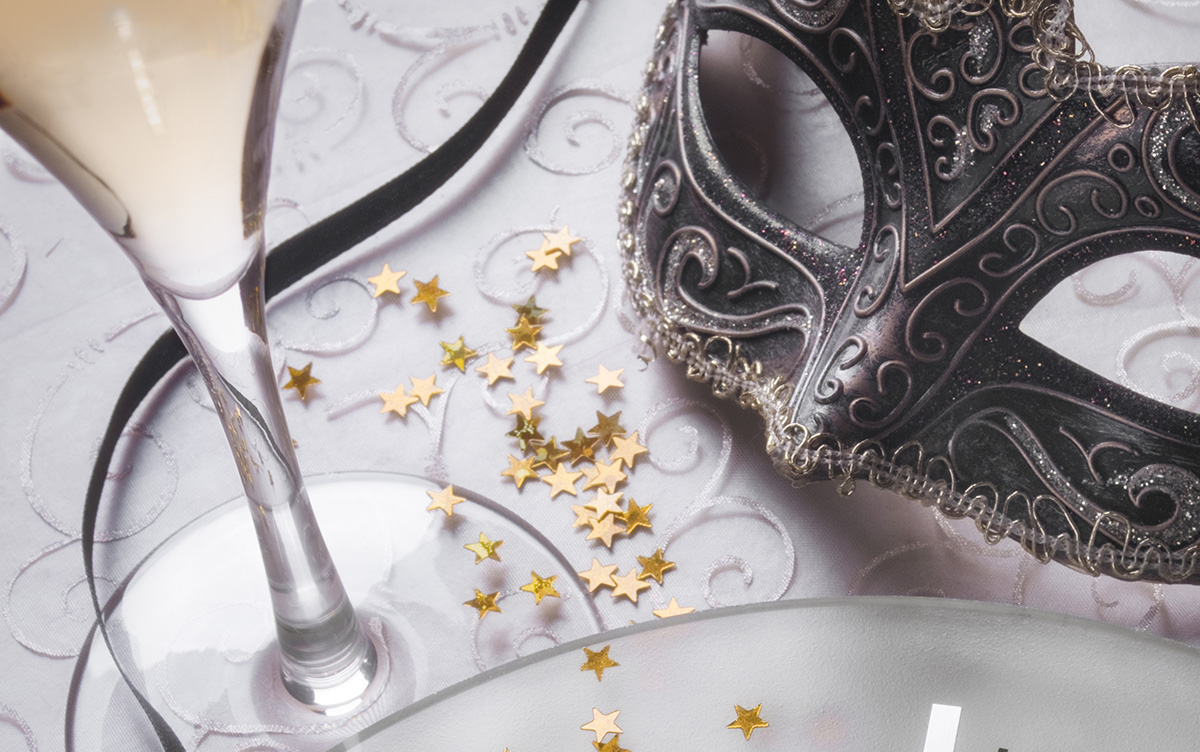Bars & Parties
‘The family I never had’
Local LGBT students benefit from Point Foundation scholarships


Harjant Gill, a 28-year-old Point Foundation Scholar who immigrated to San Francisco from India with his family in 1994, says coming out proved rough. 'They didn't even understand what it meant,' he says. (Blade photo by Michael Key)
Anyone struggling with an inferiority complex would do him- or herself a favor by staying away from the local Point Scholars, recipients of Point Foundation scholarship money for LGBT young people. They’re a group of staggering overachievers who’ve accomplished a lot for their age, often in the face of adversity.
India native Harjant Gill, 28, is working on a Ph.D. at American University studying anthropology, migration and gender. He’s gay and also a filmmaker who’s made a handful of shorts and documentaries that explore issues like cultural identity, homophobia, alienation, AIDS and more.
Lesbian Kelsey Phipps spent six years working for the late Sen. Edward Kennedy as a policy adviser but quit to go to law school at Georgetown University.
And Los Angeles native Joe Goldman, a junior political communication major at George Washington University, got involved in Israeli and global warming issues at age 12 before taking up LGBT rights causes shortly after he came out at 14. Since then he’s interned for Equality California, the California League of Conservation Voters, for several elected officials in his home state and on the presidential campaigns of Hillary Clinton and later Barack Obama.
All three and a handful of others in the D.C. area have benefitted from Point Foundation scholarship money and opportunities for mentoring from the Foundation, started in 2001 by partners Carl Strickland and Bruce Lindstrom, the latter a gay entrepreneurial success (he co-founded what became Costco) who’d been exiled from his evangelical family upon coming out.
There are 67 current scholars and 75 alumni. This year’s crop of about 38 new scholars, to be announced in June, will have been selected from more than 4,000 applicants. The Foundation, which has 10 full-time staffers, operates with a $3 million-plus endowment supplied from a bounty of corporate sponsors, individual gifts, bequests, benefits and fundraisers. That’s up substantially from the initial 2004 endowment of $100,000. Most scholars are in the program multiple years. The average scholar receives about $9,300 per year for tuition, books and living expenses.
“It’s really about giving them the support they need to be successful,” says Vince Garcia, Point’s scholar relations and selections program director. “It’s about helping them move beyond whatever forms of marginalization they’ve encountered.”
That varies, of course, from scholar to scholar. For Gill, who came out at 15, just a year after moving to the U.S. with his family, it was a rough start.
“My family told me I was financially cut off if I moved out and I knew I couldn’t live there so there was this constant back and forth about my sexuality,” he says. “And their unwillingness to even discuss the topic. High school was very bad. I never went to class because I was worried about getting beaten up, so as a result, my GPA was very bad.”
Phipps came out at 16 and had a girlfriend her senior year of high school in Washington state. She’s reluctant to say how bad it was initially because she’s at a point now where her parents have come a long way and have even invited her present girlfriend to their house for holidays.
“They really are coming along and trying to have a relationship,” she says. “Before my mom would just hang up if anybody except me answered the phone.”
Goldman says he’s one of the lucky ones. His parents were supportive. So why does he need the aid?
“I’ve been marginalized by our laws just like all of us have,” he says. “There are many parts of the country where safety could be an issue. It isn’t necessarily in the literal way. People might not be throwing homophobic epithets in my face but it could be, ‘Oh, he worked at Equality California, I don’t want to hire this gay guy.'”
Scholars go through a rigorous application process and have to maintain a 3.3 GPA to stay in the program. There are also strict rules about how the money is spent. Gill says his need for next year will likely be $15,000. He and the Point people determine a fair amount for him to come up with on his own — maybe $2,000 or $3,000. Then they supply the other $12,000.
And it’s not just about money. Connections are made through the organization. Phipps met local activist Paul Yandura through Point and got involved in GetEqual, a new queer activist group. And all the scholars have mentors they meet with regularly.
Goldman says his mentoring relationship with Brian Branton, chief of staff to U.S. Rep. Jared Polis (both Branton and Polis are gay), has been “unbelievable.”
“Just that he would take time from the crazy, hectic, insane world of Capitol Hill and work with me has been great,” Goldman says.
Gill says Point offers crucial help in multiple ways.
“It’s an absolutely wonderful thing,” he says. “It’s incredibly important and incredibly needed in the gay community. These students who are Point Scholars are the next movers and shakers. They’re all incredibly brilliant and smart and it’s great to provide them now with the support and nurturing they need and also the emotional support. Sometimes you just need someone to believe in you. In some ways it’s the family I never had.”
Point Foundation
Annual D.C. reception
Thursday, May 6, 6-8 p.m.
Equality Center at HRC
1640 Rhode Island Ave., N.W.
Tickets $75
pointfoundation.org
Bars & Parties
MIXTAPE returns Jan. 4

“MIXTAPE with DJs Matt Bailer and Shea Van Horn” will be on Saturday, Jan. 4 at 10 p.m. at the Atlantis.
This event is D.C.’s legendary LGBTQ dance party. Founded in 2008 by DJs Matt Bailer and Shea Van Horn, MIXTAPE quickly became a staple of the city’s queer nightlife, bringing together a vibrant crowd of music lovers, dancers, and everyone in between. Known for its eclectic blend of indie, house, nudisco, and throwbacks, MIXTAPE creates a unique, inclusive experience that brings people back to the dance floor time and again.
Tickets are $20 and can be purchased on the Atlantis website.
Bars & Parties
Ring in the New Year with Capital Pride
Rainbow Masquerade features drag shows, aerial silk performances

Capital Pride will host “Rainbow Masquerade NYE Party” on Tuesday, Dec. 31 at 9 p.m. at 3400 Georgia Ave. NW.
There will be an all-night open bar, midnight Champagne, drag shows and aerial silk performances. There will also be dessert and midnight snack tables and themed photo ops.
To get tickets and a discount (Code: CAPPRIDE for $25 off), visit Capital Pride’s website.

Capital Pride/World Pride will host Rainbow Masquerade at Hook Hall, a New Year’s Eve party featuring drag shows, silk aerial acts, private lounges and the venue’s Hot Tub Cabana. According to Brandon Bayton, Capital Pride executive producer, “Step into the Fabric of Freedom and toast World Pride 2025 in style—where every moment sparkles, every performance dazzles and every toast makes a difference. It’s going to be an amazing night!”
The party is Tuesday, Dec. 31, 10 p.m.-2 a.m. at Hook Hall, 3400 Georgia Ave., N.W. Proceeds benefit Capital Pride D.C. and tickets are available on Eventbrite.
-

 Obituary4 days ago
Obituary4 days agoLocal attorney, LGBTQ rights advocate Dale Sanders dies at 75
-

 U.S. Federal Courts3 days ago
U.S. Federal Courts3 days agoFederal judge blocks Trump passport executive order
-

 Mexico4 days ago
Mexico4 days agoGay couple claims Puerto Vallarta wedding venue discriminated against them
-

 Books3 days ago
Books3 days ago‘Pronoun Trouble’ reminds us that punctuation matters





